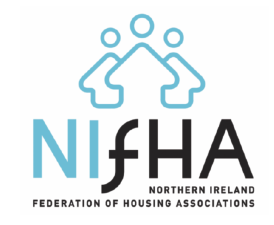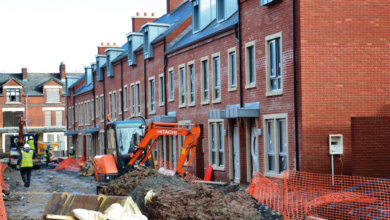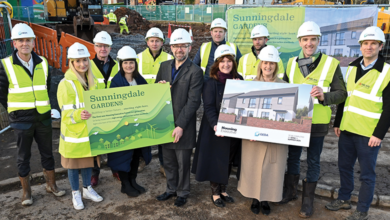Putting housing on a firm footing

A new Northern Ireland Executive means a new opportunity to proactively address the challenges we face as a society, and when it comes to housing, Northern Ireland’s record is on very shaky foundations, writes Seamus Leheny, Chief Executive of the Northern Ireland Federation of Housing Associations.
In 2022/23 housing associations exceeded new build completion targets set by the Department for Communities of 1,400 by delivering 1,449 despite facing considerable challenges including record levels of inflation. Housing associations brought the total number of homes managed by the 20 associations in Northern Ireland to more than 59,000 in that period and will surpass the 60,000 milestone mark by year end 2023/24.
But it is well short of the number of homes needed, and in 2023/24 a budget cut of 14 per cent has seen the new build targets from the Department reduced significantly – down from 1,950 to less than 1,500.
The sharp rise in material and energy costs in recent years has seen construction costs soar. It is not just stadiums like Casement Park and multi-million pound infrastructure projects which are impacted by this, but social housing providers have also felt the pinch.
With half the funding for social housing construction coming from the public sector, and these budgets declining in real terms, that only means fewer building sites, fewer jobs for construction workers, and fewer social houses built. While some housing associations are able to raise significant finance in the private market, this is not a long-term solution to the lack of prioritisation of social housing within the wider Northern Ireland Executive budget.
Even with finance secure, the process of securing planning permission is unnecessarily bureaucratic and plagued with delays, including those from statutory consultees. Belfast’s new Local Development Plan – which requires all developments over 10 units to include 20 per cent social housing – is welcome, but its implementation is in the very early phase and it is too early to reach a verdict.
Further problems then arise when trying to connect to the water and wastewater infrastructure, where NI Water says it does not have the capacity to connect new projects in many areas.
With a new Northern Ireland Executive in place, when we pose the question ‘do we really recognise the importance of housing’? What is the answer?
Along with our sector colleagues, I wrote to the new First and deputy First Ministers, asking them that housing be properly recognised by including it as a standalone outcome in the Programme for Government. What that would mean is that housing would be considered as one of the most fundamental and important elements of our society. It would see that government departments working together to improve housing stock and new build, as it will have positive, knock on impacts across several parts of society including health and education.
Taking a strong approach to housing policy and investment will therefore deliver positive economic and social outcomes to the benefit of everyone. The Northern Ireland Executive putting housing on a firm footing – with a concrete pledge in the Programme for Government – would be a great step to recognising the importance of housing.
T: 028 9023 0446
E: sleheny@nifha.org
W: www.NIFHA.org






